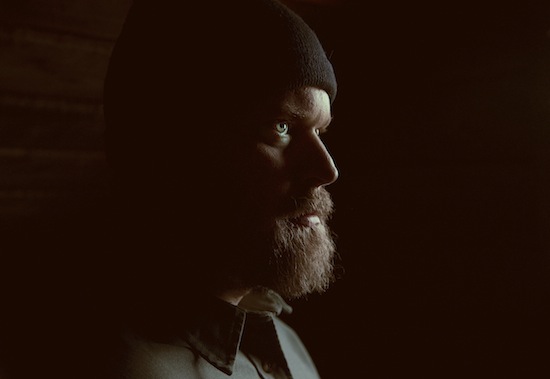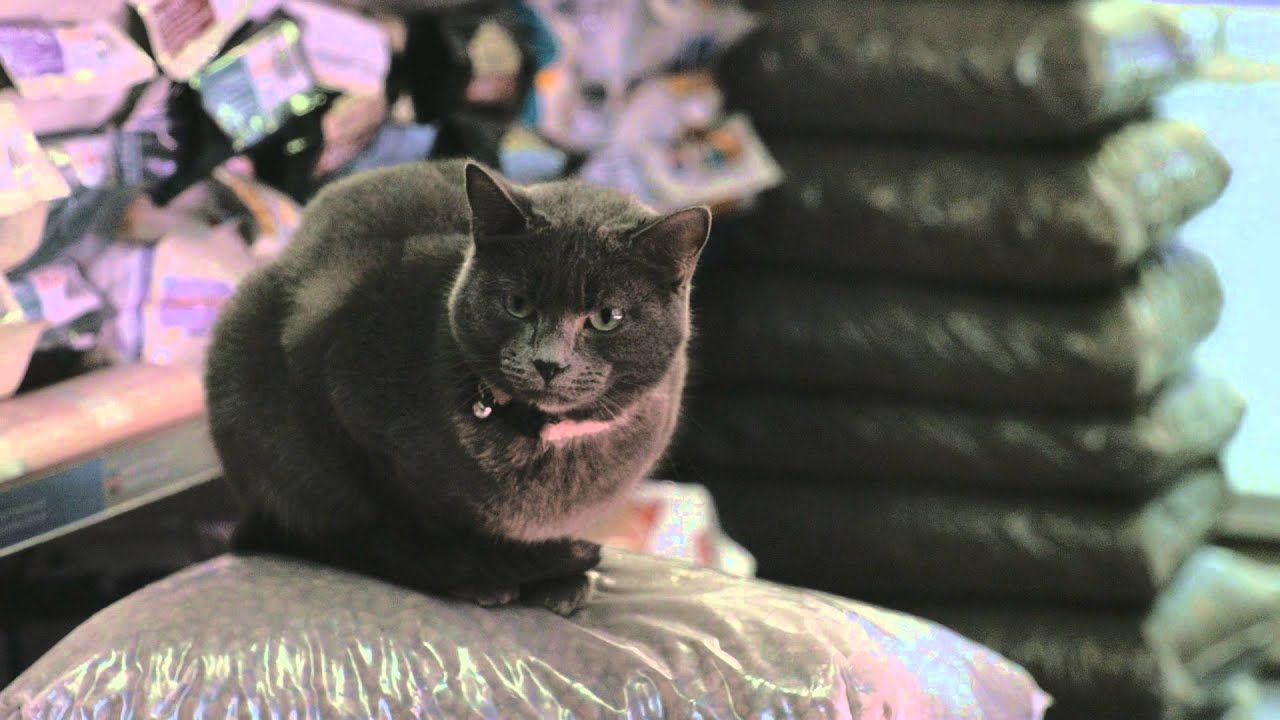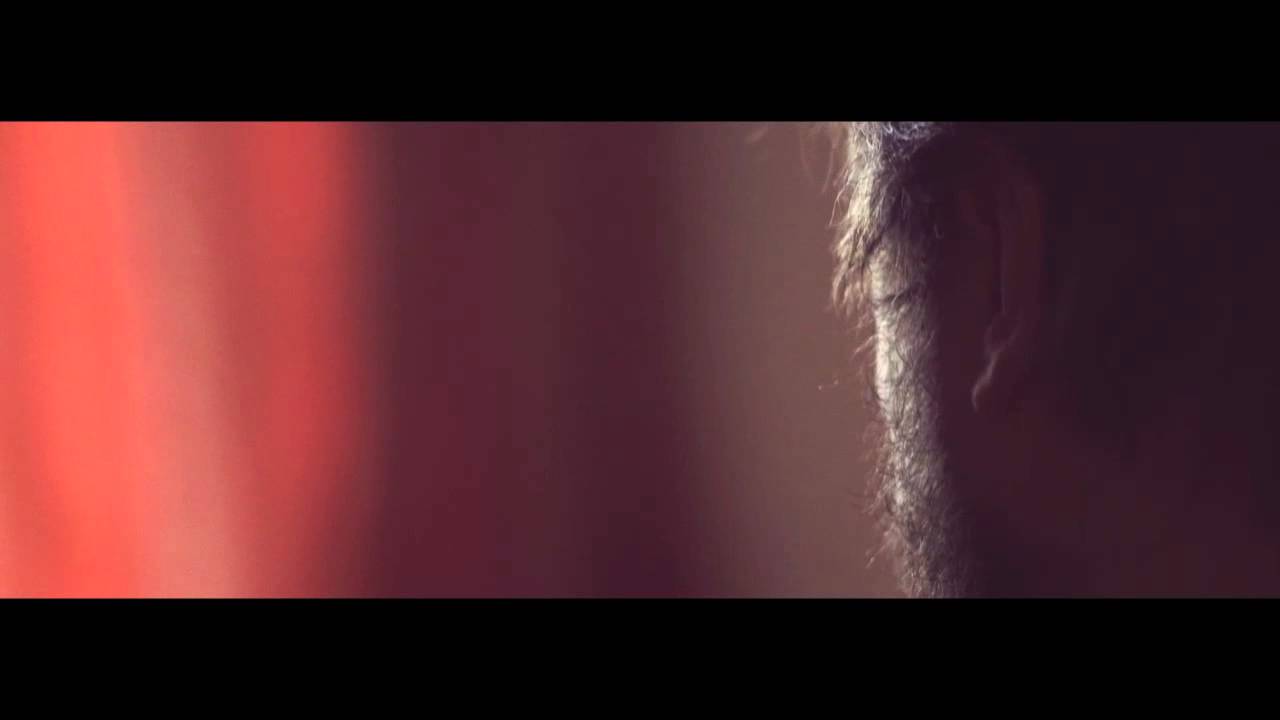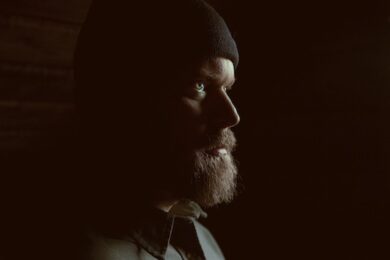After John Grant had spent the best part of ten years with his first band, The Czars, it got to the point where five out of six of them all left in the space of a few months in 2004. This left the Reykjavík based singer songwriter by himself performing under that name. Taking some time off to sort out his demons – he was partial to drugs and a host of other things – he began to step back into music and a solo career with the release of 2010’s Queen Of Denmark, which he put together with the help of his chums Midlake. Now with the follow-up, Pale Green Ghosts, he has embraced his electronic urges, teaming up with Biggi Veira of Gus Gus as well as teaming up with "Mrs John Grant" – Sinead O’Connor – who sings backing vocals.
Now, it has to be said, he’s not had the greatest 24 hours prior to the interview. It seems what should have been a celebratory gig in Brighton was marred by some urchin making off with his laptop, literally taking it off the stage – meaning he has spent most of his day off frantically trying to get it replaced. But hey, we’re not here to discuss lap top thieves when there is contender-for-album-of-the-year Pale Green Ghosts, his chartbusting follow-up to his debut actually-crowned-album-of-that-year Queen Of Denmark to chat about.
Aside from the laptop, how have you been feeling on this tour? It seems like there’s a lot of love out there.
John Grant: Yeah. Well, this tour has been really patchy. There have been tiny little venues that couldn’t even accommodate us, where we had to play it by ear, and there’s been Shepherds Bush… the thing is we’ve had much much much much much much better sound systems that could handle what we are doing, at much smaller places. That Shepherds Bush sound system has had the shit beat out of it.
When I walked out on the stage at Shepherds Bush and saw the crowd out there, I thought “Wow… things have changed a little bit” and that’s really cool. I don’t know what else to say. It’s gratifying. And moving.
What I’ve noticed, is that it seems to have touched quite a broad range of people. The week the album came out, you were up against David Bowie, I suspect you weren’t expecting that.
JG: Yeah, that was annoying but still it was okay. It shone through! It was something I didn’t expect and was delighted by.
Number 16!
JG: Yeah! That’s definitely new for me. I mean, things have definitely changed, for example being invited by Guy Chambers to the Ivor Novello Awards the other day, and talking to Trevor Horn… wow… meeting Peter Gabriel, and then who is next to Peter Gabriel? Randy Newman!
Did you bump into Marc Almond? (Marc was collecting a special award)
JG: He was sitting on the table behind me. I was supposed to meet him, but I had to get up in the middle of it and leave and get to Brighton for the show. I really would love to have met him. What’s funny is I’ve been listening to a lot of Marc’s solo stuff for what was the first time while making this record, because Biggi Veira is a HUGE Marc Almond fan. Biggi was introducing me to a lot of stuff I’d never heard, like Mother Fist and all of that stuff, so I was really grateful, because I never realised just how incredible he is. Like the Russian stuff? I’ve spent a huge portion of my life studying Russian and becoming proficient in that language and loving them for their music and literature, and I didn’t know he had done that, which is a really gutsy awesome thing. I plan to get everything now. I can’t believe how much I missed. Soft Cell were huge in the states, but I didn’t hear anything after that. I think you really had to seek him out.
You’ve been posting various videos on your twitter such as Devo…
JG: Well Devo were towards the beginning for me. Devo and Missing Persons and Eurythmics and Cabaret Voltaire and Yello. Yello were and are and always will be huge for me, and I don’t think a lot of people realise what their contribution has been.
Why did it take so long for yourself to experiment with electronic music?
JG: I didn’t have the equipment, and I was afraid to. I didn’t know what to do, and I didn’t have any synthesizers. I think the big thing was I too busy being a drunk and doing drugs and never had any money for anything, so I couldn’t buy the equipment or work at how to make these sounds. Also the people that I worked with didn’t have that stuff; they had guitars and so I worked in that framework. I can play the piano, so that was something that was easy to access, so I wrote my songs on that. I could never get anything to work when I finally did get a computer. My system was crap, I never had the right hook-ups etc. So I think the reason I finally decided to go with Biggi on this record is because that’s all he does, is make those sounds. He made them on analogue equipment, and I’ll never be without a Juno 106 ever again in my life.
You’ve described Queen Of Denmark as a seventies album…
JG: It really did reflect my childhood. What I was listening to back then. That seventies AOR type of thing, and Pale Green Ghosts is definitely a decade later, it is definitely a reflection of my adolescence which took place in the eighties, and which like the album, is all over the place – chaotic. And on both albums I’m filtering now, through the adolescent period of the eighties, and Queen Of Denmark was now mixed with childhood. I think when I get to my twenties, that will be the darkest album yet.
Were you thinking about going rave-tits amyl-mental on the next one?
JG: I’ve told my guitarist that I would like the next one to be a mixture of Einstürzende Neubauten and Beach Boys. That’s what I’d like to do.
Did you feel under pressure after Queen of Denmark to continue in that vein, or did you not give a shit?
JG: It would be wrong to say I didn’t give a shit, but I ignored the fact that I did give a shit, because I knew I had to ignore that in order to be able to anything I could stand behind. I think that’s why I didn’t want to do, and one of the reasons I didn’t go to Texas and work with the Midlake boys again – which I was slated to do. I was going to work with a new producer who works with St Vincent, and as we know, those albums are amazing. It’s not like they wouldn’t have done anything great with me, I wanted to steer it into a direction that was pure John Grant, and the sounds of the eighties – all that synth stuff, bass synth and all that stuff, and those beats – that stuff that I have to have in my music. Otherwise it’s not John Grant.
How’s the newer stuff combining with the older stuff on tour?
JG: I was worried about it. We do ‘GMF’ after ‘Why Don’t You Love Me Anymore?’ and that sort of works, as ‘Why Don’t You Love Me Anymore?’ is an acoustic song dressed in electronics, but I can do that solo on piano, and to do ‘GMF’ after that, it works and makes sense. I try and build a set that works sonically and energy wise, so that there’s tension and building things up and letting people get their energy out with lots of electronic songs in a row, so that once you get back down to the really slow stuff, they’ve already had their fun jumping around and are ready to have a little rest and sit back and listen.
When I was done with this album, I didn’t know what I was going to do, how the fuck it would work on stage. I wanted to make sure that when we went out on the road there wasn’t just two of us, and present Pale Green Ghosts with just a piano. No, we wanted to go the full monty, and that’s what is frustrating with some of the venues on this tour… is… you know. It’s been a stressful tour so far, but also really great. And you know what; I’ve never really danced on stage before. I’m not a dancer, but I can dance, my own way. But for me to be a completely sober man, and to go out there and let myself… dance, to my own music, in front of all these people, and at shows where my brother’s seen me for the first time since I started doing the solo stuff. To feel comfortable enough completely sober, to dance like I would when I’m alone… FUCK, that horrified me before this tour. But now it’s become a reality and I can do it, and I love it.
My other half thinks you swear too much.
JG: Really? That’s funny. I’m almost offended when people say that. I’m not judging your partner in any way, but I’ve heard it before. Someone from Mojo said it, which shocked me more, "Really? What business did you think you were getting into? And who did you think I was?" I mean, I grew up in a very strict home, I mean I swear because I’m furious all the time, because as I say on this album, "I can barely conceal my anger" you know? That’s why I swear. I swear because it’s appropriate in this context and because that’s how I speak. There are times where I do swear too much, but it’s the reality of this context of what’s going on in these songs, and because there is no other word that fits.
It’s funny, because I had this thought myself when I was making the album and thought, "Jeez, you sure do say fuck a lot", but what would I say? I wouldn’t say, "Sod off", I wouldn’t say, "Chill out", I’d say, "Fuck Off". So I do understand that some people would say I swear too much, but these are my feelings, but I also feel that it can’t be any other way.
I feel, myself, and probably why a lot of my friends like it too, is that it is much more honest.
JG: Language is huge for me. I wouldn’t call myself an expert – when it comes to grammar, I am sort-of an expert more in other languages more than English. I do try to express myself with a varied vocabulary, and I’m aware, sometimes as an American, I feel a little bit nervous around the Brits, because I feel on the whole, Brits use a wider vocabulary. I do think about language constantly, so maybe you can say I say Fuck too much, but you’re not going to hear "callipygian" on anybody else’s record either. You’re not going to hear "supercilious" and "callipygian" in the same song.
Would you like to think that there’s a teen now, who was just like you, growing up gay and feeling alone, but seeking comfort in your music?
JG: I’ve spent so much time telling myself that I’m not a musician or a songwriter. I don’t think I would ever think I could affect someone, or if somebody could be affected by what I do. I know that isn’t a fact or the truth, because I can see it and hear it, you know when people come up to me or see me at a show, so I am aware of it. But on a daily basis I’m constantly like, "Ugh, I’ll never write another song," but I’ve written a bunch of new songs. I do continue to write new songs, but every time I write a new one I think it’s the last one. Sometimes I think I’ll never write anything as incredible as ‘Queen Of Denmark’ again, or anything as incredible as ‘Where Dreams Go To Die’. But you know, there is only one ‘Where Dreams Go To Die’, because that has been written and done, so I don’t need to repeat that. We don’t need two of those [laughs].
It’s almost reacting against the previous song.
JG: I have understood that I can be inspired by anything, but translating that into music is not as easy. I talk too much about what I’m doing, and I like to talk about the songs that I’m writing right now. [People] say, “Don’t talk about it” but I will write a song about the trees, because I can’t get enough of the trees. Looking at the sky through the branches of an old gnarled oak tree… Good heavens! Devon? Don’t get me started on Devon, and I haven’t even been to Cornwall yet. Translating that into a song is quite difficult, because I’m not going to say “I love trees”, because I will then go out, douse myself in gas oline and then roll around in a big pile of granola, and light myself on fire. I’m not down with the hippie thing.
Do you find it funny that people call Pale Green Ghosts a dance album?
JG: No. Not at all. Maybe surprising.
There’s a couple of tracks, such as Sensitive New Age Guy, that sound a bit like LCD Soundsystem…
JG: Which is a huge compliment, because that’s another band I love and that’s another great singer, and his bass synth stuff makes my testicles vibrate with joy, I just can’t get enough – beautiful stuff. I’m sure I’ve been inspired by James Murphy and he is someone who I feel has achieved a pure thing, whereas I see myself as still distilling down the essential elements. I feel he has reached that, whereas I’m still finding my sound, namedropping with my sounds and paying homage to Cabaret Voltaire and all these people that I love, but I’m not a sound designer yet and its what I desire to be.
Do you always have a good idea of how a song will finish up?
JG: I do, but I think there’s still a lot I don’t know about my songwriting. When you hear me talk about it in interviews, that’s how I perceive it now. When people ask me how do I write my songs, I always tell them what I think, but I’m not always sure that I’m right or whether I can observe it. It seems like I always write music to fit around words. Whereas it seems like some people can create musical masterpieces and then put words to it. It’s more about words for me and then making the music fit. I’d also like to make words fit music too. I really want to be a modular synth nerd, I wanna be one of these guys who build their own synths, but I don’t think I am. I have a sneaking suspicion that I am not that guy. I wanna be the biggest synth nerd in the world but I don’t know if I have the understanding. I wanna be the guy who is surrounded by all this synth hardware on stage. Like Jean Michel Jarre, or Vangelis or one of those guys. I wanna be the guys from Yello and Cabaret Voltaire. I wanna understand, it’s such a subtle art form. I wish I was a robot, like Kraftwerk. Those amazing creatures. All those guys: Lindstrom, John Talabot, Jimmy Edgar – adore – so much good stuff. I got to play with Lindstrom in Milan at some weird electronic festival we were at and I was like, “Why am I here?” but it was a great show, and I got to meet him afterwards, it was like I was meeting Paul MacCartney. Oh and don’t get me started on Apparat, and Modeselektor!
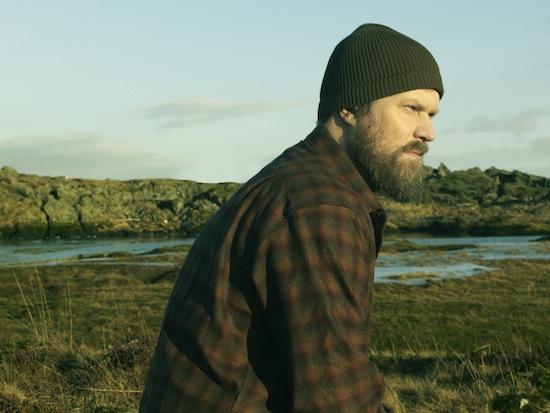
You revealed your HIV status onstage last year [during a performance with Hercules & Love Affair at Meltdown] and this question not withstanding, were you worried that it would soon become a thing that you’re always asked about?
JG: Yeah, but I don’t care
It must have been hard at the time though.
JG: It was, but what concerned me more was my attitude that got me to that point. I didn’t tell my family. I didn’t want to hear from the religious sector who’d go, "Well, you’re being punished from God because you’re a faggot and that’s what happens to faggots – they get HIV, which was a disease designed by God to kill faggots." So I think, "My mother was a devout Christian and she died of lung cancer, is that like, a Christian disease? Why would God see fit to destroy her with lung cancer, when she was so faithful?" None of that shit makes sense. I also didn’t want to play the sympathy game. As an addict, and as someone who has been manipulative with people, as I have during those times, I didn’t want to go out and make some big drama out of my HIV status and be, "I need your sympathy because now I’m diseased." At that point I’d been sober for years, and knew that I couldn’t afford to fall back into similar patterns, like making drama for the sake of drama, and I needed to figure out why this happened to me… and I knew why this had happened to me. It happened to me because I was holding on to self-destructiveness and self loathing. And I was holding on to them because I wanted to keep those things for myself, because fucking is awesome. I didn’t want to face the fact that my relationship to sex was as warped as my relationship to everything else, to drugs and alcohol. And the thing about sex is that it’s a natural thing about being human, like eating disorders, I feel like these are really difficult things, because they are the part of being human that you need. Alcohol – that’s not part of being a human – and like drugs and all the synthetic shit, it has nothing to do with being a human. Sex is part of who you are, and when that becomes warped and you’re using sex like you were using the drugs because of the chemicals and endorphins involved, and you are using it change your state of mind quickly [clicks fingers] and all these things you are using are escapes, to change, to cover up the fear, and change your current state of mind. I knew my relationship to sex wasn’t a good one, but I wanted to keep that for myself.
You know when you feel like you’ve been slighted or you feel like a failure and you feel like avoiding your art, or avoiding yourself – you’re going to go to the fucking mall and have that feeling of accomplishing something, which you haven’t, and that’s what happened when I heard about the HIV, I knew that the gig was up – I forced its hand – but there is nothing I can do about this now. The guy I had unprotected sex with told me he was fine – and people were saying, "He’s an asshole", but he has nothing to do with this. Nobody forced me to do that. Nobody forced me to have unprotected sex, I’m an adult, I happen to know that when someone says they’re fine, that I don’t necessarily know that. They could be lying, they could be a sociopath who doesn’t give a fuck about you – you don’t know. So I didn’t want to go into my old patterns of making drama, worrying my family who were thousands of miles away and couldn’t do anything or know anything about this disease, so I didn’t tell them for about a year and a half while I started to face… this. So yeah, it was a dark period. I knew I couldn’t fall back into previous behaviour and so I felt bereft that I didn’t have the tools to deal with it now. There’s a reason why you’re here, and unfortunately you’re an adult now and you have to take responsibility for the rest of your life and for now and for what’s happened. Because the people who hurt you and the people who are responsible for this and the way you developed – all that stuff has gone.
It was a mindfuck, and it continues to be, and you know what out on the road some nights I forget to take my medication – like last night when my computer was stolen – I can’t remember if I took my medication last night or not. My alarm went off on my phone, but I was dealing with the computer thing and in a world of hurt, but I really need to take that medication you know?
When I first moved to London about 12 years ago, I moved in with a guy who was HIV, and seeing what he had to go through daily – reactions to new meds, meds stopping working etc – was quite a sobering experience.
JG: I bet, and there’s a huge bareback scene out there, and I do think it’s hot. Bareback sex, that’s what I want. I couldn’t stop and I ended up here because I didn’t want to face [my patterns of behaviour] because it seemed maybe too big to face – this destructive behaviour, and what it meant about how I felt about myself. Also I think about living with the fear of getting HIV for so many decades… did I feel like it was an inevitability, so that I could stop being afraid of it? I think that about myself sometimes. Like, was I relieved when I found out I finally had it and that I could stop living in the fear of it all the time. I do ask myself that question.
There’s an element that would suggest that it’s a freeing experience, and I think as much with the generation here that didn’t grow up with the ‘Don’t Die of Ignorance’ Public information films that put a whole generation off touching another human being, there’s also a whole wave of drug abuse that pretty much goes hand-in-hand with it
Sure, there are huge parts of the porn industry that will film people high on crystal meth and where it’s glorified, called ‘No Fear Sex’ or whatever.
Almost like an extreme sport type thing…
JG: Yeah! It’s like, "We don’t give a fuck." No fear. It’s doesn’t matter. We do what we want. There’s a lot of gays out there who are completely judgemental who are like, "Ooh you are just one of those self-loathing gays, I would never do THAT” and they seem so horrified by this behaviour, and I almost don’t buy it.
It’s as if that once the minority, that we were, became accepted, then elements inside of it start turning on each other.
JG: I definitely look down my nose at people on the scene. You know, the beautiful bear scene. These men who will never accept me into their club because I don’t have enough hair on my chest, but a lot of the time those are the men that I desire. But I feel I can’t be accepted by them because I’m genetically inferior. That’s the big truth in a lot of these scenes – there are requirements, and if you don’t pass muster, you [dramatic voice] cannot come aboard. I feel a lot of anger about that too.
The scene rarely throws up great love affairs, sometimes it takes someone outside of that to make you realise what damage you may be doing.
JG: I’ve written two albums based on a relationship that crushed me. I got the living shit kicked out of me by that situation. I may have had my heart broken before, but what was unearthed in me and what I had to face, I felt completely unequipped to deal with it and it was overwhelming.
Do you think you may have put off any potential suitors, by being so honest?
JG: I don’t know. It depends on how they understand where I’m coming from too. For example, I’ve said some cruel things on the record like, well maybe not cruel, but ‘Blackbelt’ was calling him out on his bullshit, and on ‘Vietnam’ there was the line: "The only thing that brings me comfort is the knowledge that no matter who you are with, you’ll always be alone." But the truth is, if I love him a fraction of the amount I claim to, then I can only want him to be as happy as he can possibly be. And that’s the truth.
Pale Green Ghosts is out now on Bella Union. John Grant plays Latitude in July

